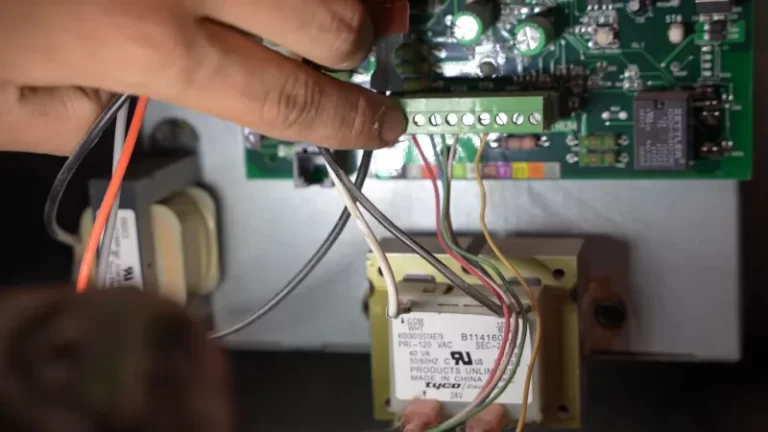Who Sells Capacitors Locally? Your Ultimate Guide is Here
There’s a unique frustration that comes with being in the middle of a project, only to have a critical component fail. When that component is a capacitor, the search for a local replacement can feel like a quest for a needle in a haystack. The immediate need for a specific part clashes with a retail landscape that has increasingly moved online, leaving hobbyists, technicians, and DIY enthusiasts wondering where to turn.
This challenge isn’t just an inconvenience; it can bring important repairs and exciting projects to a grinding halt. The problem is clear: you need a capacitor, and you need it now. This guide is designed to solve that exact problem, providing a comprehensive roadmap to finding capacitors right in your neighborhood, often in places you might not expect.
You'll Learn About
Why Has Finding Local Capacitors Become So Difficult?
The decline of broad-service electronics stores has left a significant gap in the market for individual components. In the past, shops like RadioShack were a reliable source for a wide range of electronic parts, including a decent selection of capacitors. Their disappearance from many towns and cities is a primary reason why local sourcing has become a challenge.
Furthermore, the economics of modern retail favor specialization. Big-box stores focus on high-volume consumer goods, not the niche market of electronic components. The vast inventory required to satisfy the diverse needs of electronics work—from vintage radio restoration to modern appliance repair—is better suited to the warehouse model of online distributors.
The Shift to Online Megastores
The convenience and vast selection of online giants like Digi-Key and Mouser Electronics are undeniable. They offer millions of components at competitive prices, delivered directly to your door. However, this model doesn’t account for the immediacy required when a home appliance breaks down or when a project needs to be completed on a tight deadline. The very efficiency of the online model has, paradoxically, made urgent, local sourcing more difficult.
Your Go-To Local Sources for Capacitors
Despite the challenges, local sources for capacitors do exist. The key is to think beyond traditional electronics retailers and consider businesses that rely on these components for their own services. Here are the top places to check in your local area.
HVAC and Appliance Parts Suppliers
Heating, ventilation, and air conditioning (HVAC) systems, as well as major appliances like refrigerators and washing machines, rely heavily on motor-run and motor-start capacitors. Consequently, suppliers that cater to HVAC technicians and appliance repair professionals are often the best local bet. These stores typically carry a robust selection of the types of capacitors used in these applications.
Many of these supply houses are open to the public, though some may primarily serve trade professionals. It’s always a good idea to call ahead to confirm their sales policy. Be prepared with the specifications of the capacitor you need, as the staff are accustomed to dealing with knowledgeable technicians.

Electronics Repair Shops
Local businesses that specialize in repairing televisions, audio equipment, and other consumer electronics are another excellent resource. While they may not have a storefront dedicated to selling parts, they maintain an inventory of common components for their own repair work. Many shop owners are willing to sell a capacitor to a fellow enthusiast or someone in a bind.
Building a good relationship with a local repair technician can be invaluable. They can not only be a source for parts but also a wellspring of expert advice. Don’t be afraid to ask; the worst they can say is no.
Makerspaces and Hackerspaces
Community workshops, often known as makerspaces or hackerspaces, are hubs of creativity and technical knowledge. These spaces are often equipped with a shared inventory of electronic components, donated by members or purchased by the organization. If you’re a member, you may have access to a wide variety of capacitors.
Even if you’re not a member, reaching out to the community can be fruitful. Members are often happy to help someone in the local area, and they may be able to point you to other local resources you were unaware of. These spaces are a cornerstone of the modern DIY electronics community.
Auto Parts Stores
An often-overlooked source for certain types of capacitors is your local auto parts store. Modern vehicles use capacitors in their audio systems, ignition systems, and for filtering electrical noise. While their selection will be limited to automotive-specific applications, you might find what you need for a car audio project or a similar high-current DC application.
When shopping at an auto parts store, it’s helpful to know the specific application the capacitor is used for in a vehicle. This will help the staff locate the correct part for you.
Comparing Your Local Options: A Quick Guide
Navigating the local landscape for capacitors can be confusing. To simplify the process, here is a table comparing the most common local sources, their likely inventory, and who they are best suited for.
| Source | Typical Inventory | Best For | Pros | Cons |
|---|---|---|---|---|
| HVAC/Appliance Part Suppliers | Motor-run, motor-start, AC capacitors | Appliance and air conditioner repair | High-quality, reliable parts. | May only sell to trade professionals. |
| Electronics Repair Shops | Consumer electronics capacitors (electrolytic, ceramic) | Audio, video, and general electronics repair | Access to expert advice. | Inventory can be inconsistent. |
| Makerspaces | A wide variety of through-hole and surface-mount capacitors | Hobbyists and prototypers | Community support and resources. | Typically requires membership. |
| Auto Parts Stores | High-farad capacitors for audio, automotive-specific | Car audio and automotive projects | Readily available in most towns. | Limited selection of capacitor types. |
What to Do When Local Options Fail
There will be times when, despite your best efforts, you cannot find the specific capacitor you need locally. In these situations, turning to online retailers is the most practical solution. However, you can still minimize your downtime by choosing the right supplier and shipping options.
Many of the major online distributors offer expedited shipping, sometimes for next-day delivery. While this comes at an extra cost, it’s a reliable way to get a project back on track quickly. It’s often worth considering how much your time is worth; sometimes the cost of faster shipping is less than the cost of another day of downtime. The debate over cost can be complex, and it is interesting to consider why is ashley furniture cheaper online than in store, as similar principles of overhead and distribution apply to electronic components.
Tips for Buying Capacitors Locally
When you do find a local supplier, being prepared can make the transaction smoother and more successful. Here are some essential tips to follow.
Know Your Specs
Before you go shopping, you need to know the specifications of the capacitor you are replacing. The three most important values are:
- Capacitance (in Farads, usually microfarads – µF, or picofarads – pF): This is the most critical value and should be matched as closely as possible.
- Voltage Rating (in Volts – V): The voltage rating of the new capacitor must be equal to or greater than the original. Never use a capacitor with a lower voltage rating.
- Temperature Rating (in Celsius – °C): This is especially important in high-temperature environments like inside an appliance or engine bay.
It’s also helpful to note the physical dimensions and lead spacing if the capacitor needs to fit in a tight spot on a circuit board. Taking a clear photo of the old capacitor with your phone is always a good idea.
The Importance of Proper Handling and Storage
Once you have your new capacitor, proper handling is crucial. Some types of capacitors, especially large electrolytic ones, can hold a dangerous charge even when disconnected from a circuit. Always handle them with care and assume they are charged until you can safely discharge them.
Proper storage is also key to ensuring the longevity of your components. Capacitors should be stored in a cool, dry place, away from extreme temperatures and moisture. Much like how you would want to address a situation of water where brick meets foundation to prevent long-term damage, protecting your electronic components from environmental factors is essential for their reliability.
The Future of Local Component Sourcing
While the landscape for local electronics components has changed, it is by no means barren. The rise of the maker movement and a renewed interest in repair and sustainability are creating new opportunities for local sourcing. As more people seek to fix their own devices and build their own projects, the demand for local component suppliers is likely to grow.
We may see a resurgence of smaller, specialized hobby shops, or perhaps existing businesses will expand their offerings to cater to this growing market. The community aspect of electronics, fostered in makerspaces and online forums, will continue to be a vital resource for finding those hard-to-get parts. There’s even a strange parallel to be drawn with unrelated household phenomena; just as you might search for a logical explanation when your attic hatch opens by itself, the electronics community often bands together to solve the mystery of a missing component.
Conclusion: Empowering Your Search
The search for a local capacitor seller doesn’t have to be a frustrating dead end. By expanding your search beyond the obvious and looking towards specialized suppliers in the HVAC, appliance repair, and automotive industries, you can often find what you need close to home. Combining this with the community resources offered by makerspaces and repair shops creates a powerful local network for any electronics enthusiast.
The next time a capacitor fails, you’ll be armed with the knowledge to find a replacement quickly and efficiently. Your projects and repairs no longer have to be at the mercy of shipping times. The solution is often just around the corner, waiting to be discovered.


![Taco Zvc404 C Wire [Locating, Connecting, Troubleshooting]](https://fixitinthehome.com/wp-content/uploads/2023/02/Taco-Zvc404-C-Wire-768x432.webp)